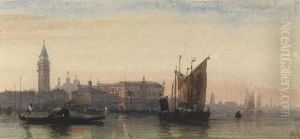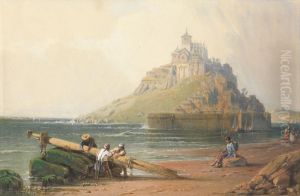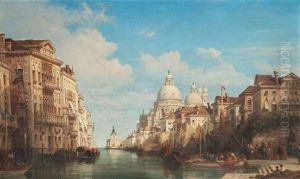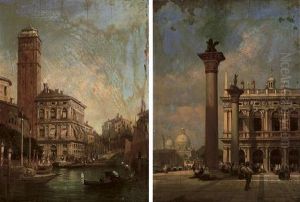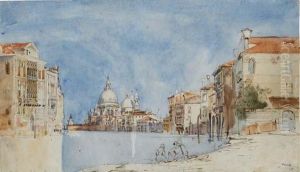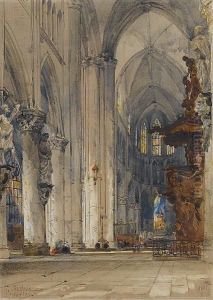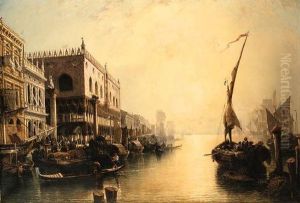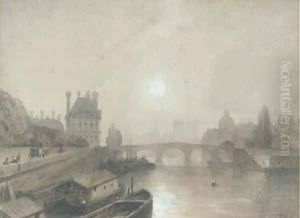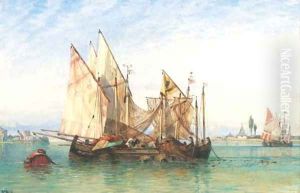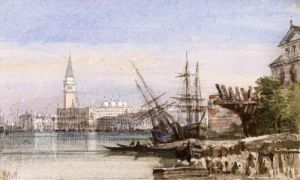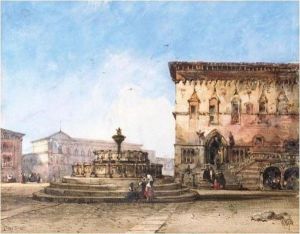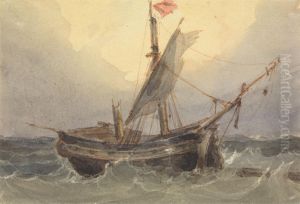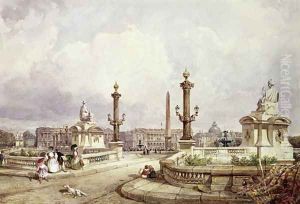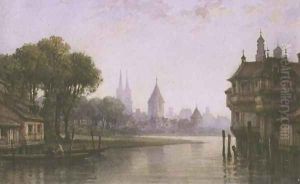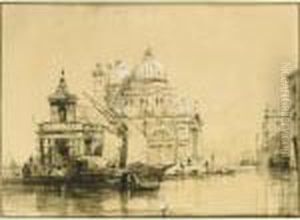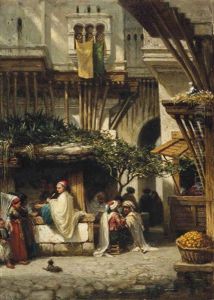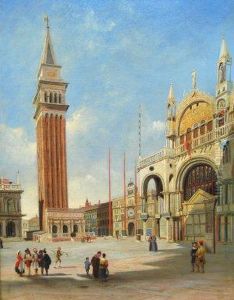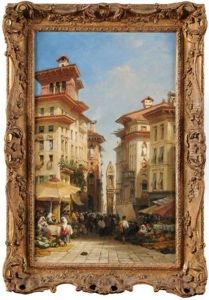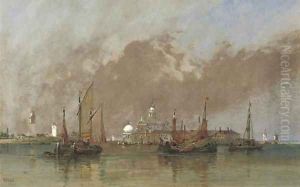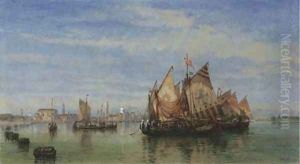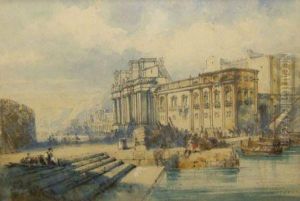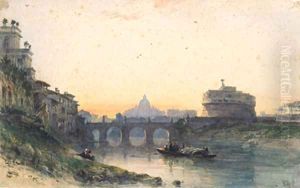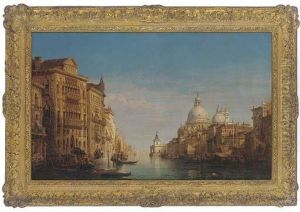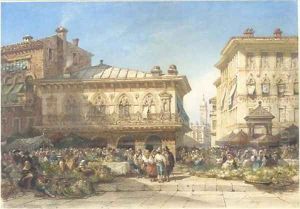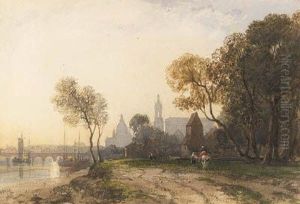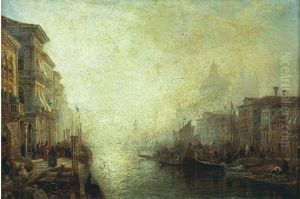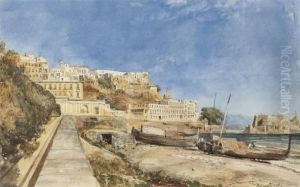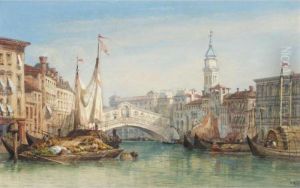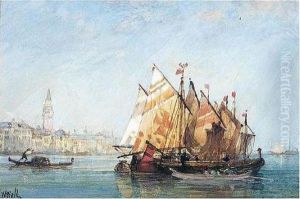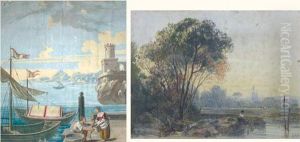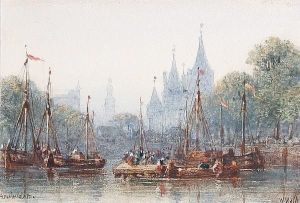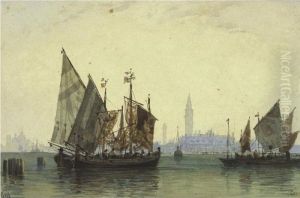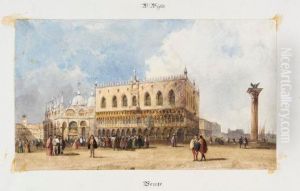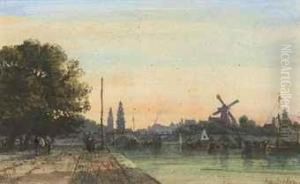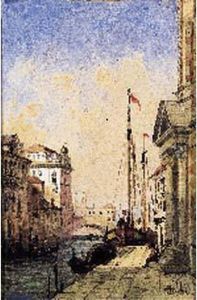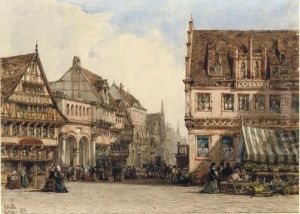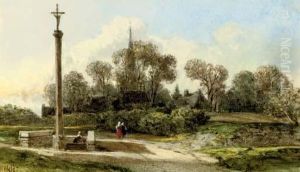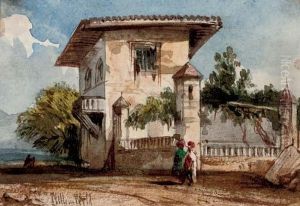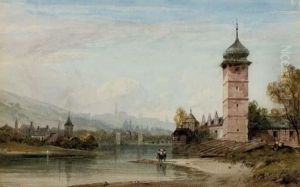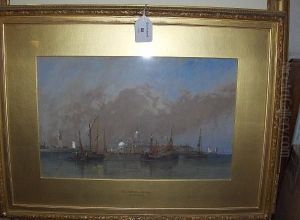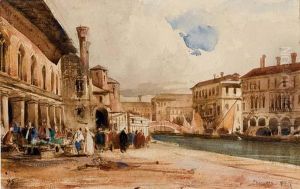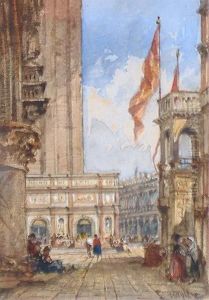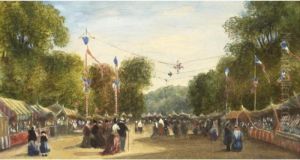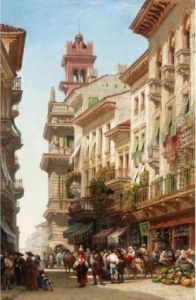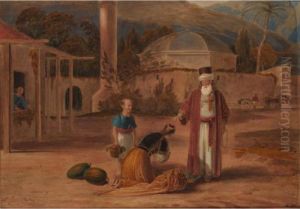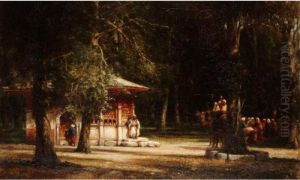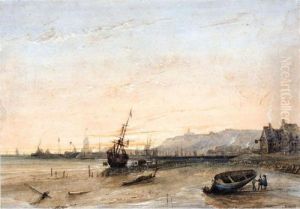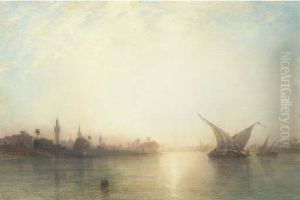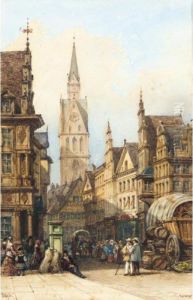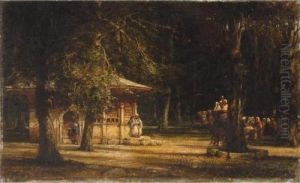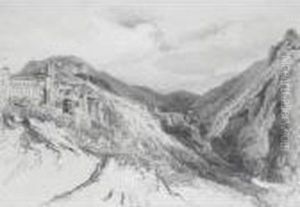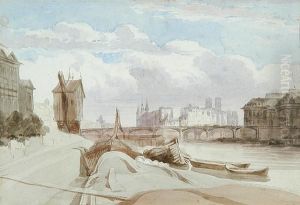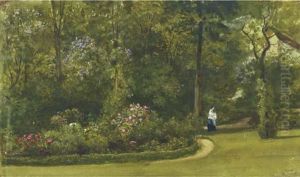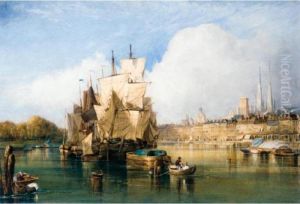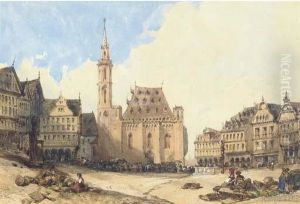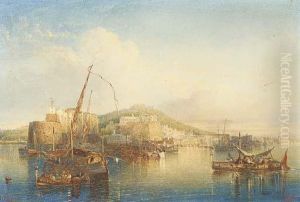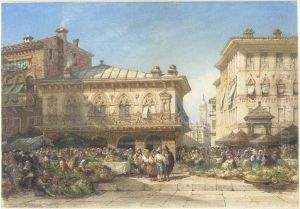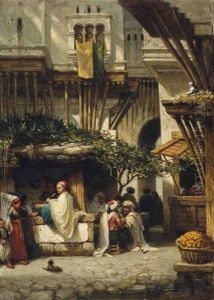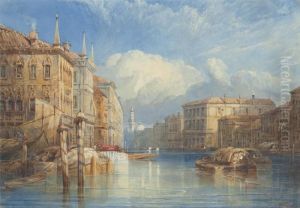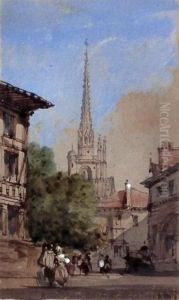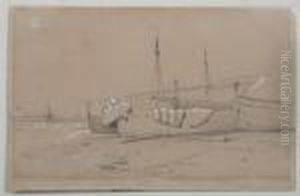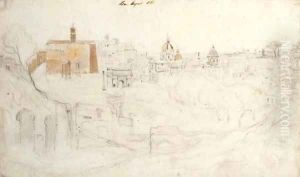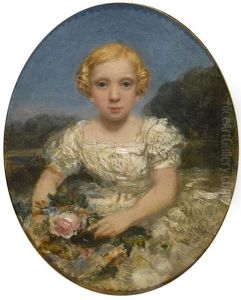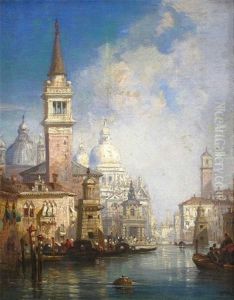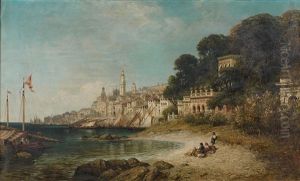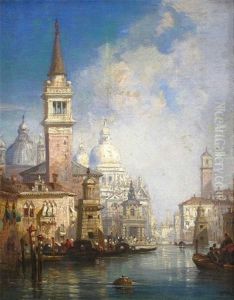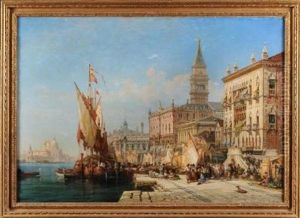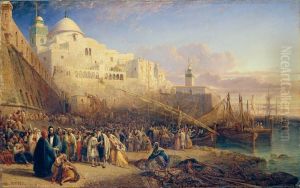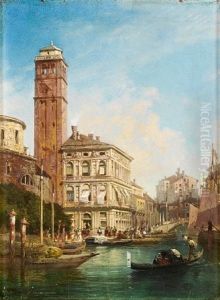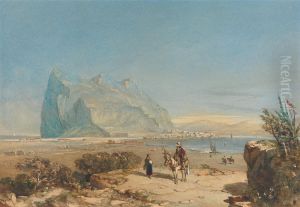William Wyld Paintings
William Wyld was an accomplished British watercolourist and engraver known for his detailed landscapes and cityscapes. Born on 20th December 1806 in London, England, Wyld displayed a keen interest in art from an early age. He did not initially set out to become an artist, as he worked in the consular service, which took him to France. It was there that he developed a strong affinity for French culture and landscape, which would heavily influence his later works.
Wyld's career in art began in earnest after he met the famed French artist Antoine-Jean Gros, who was a painter of history and a teacher at the École des Beaux-Arts in Paris. Under Gros's mentorship, Wyld honed his skills and was particularly influenced by the French artistic style of the period. He went on to exhibit at the Paris Salon, where his work was well-received, earning him a first-class medal in 1839. In 1840, he was appointed as the official painter to King Louis-Philippe, which greatly enhanced his reputation and commissioned works.
Throughout his career, Wyld travelled extensively, capturing scenes from across Europe and the Middle East. His travels to countries like Switzerland, Italy, and Algeria provided a rich tapestry of subjects for his paintings. Wyld's watercolours are noted for their fine detail, atmospheric effects, and the luminous portrayal of light, which he achieved through innovative techniques. He was particularly adept at depicting the nuances of natural landscapes and urban architecture, often imbuing his works with a sense of romanticism.
William Wyld's contribution to watercolour painting was significant in the 19th century, and his works were collected by notable figures of the time. Despite being British, much of his professional success occurred in France, and he remained there for most of his life. Wyld's impact on the art world was recognized when he was made a Chevalier of the Legion d'Honneur by the French government. He continued to paint until his later years, leaving behind a legacy of works that are still admired for their technical skill and artistic beauty. Wyld passed away on 29th November 1889 in Paris, France, leaving a lasting impression on the tradition of European landscape painting.
